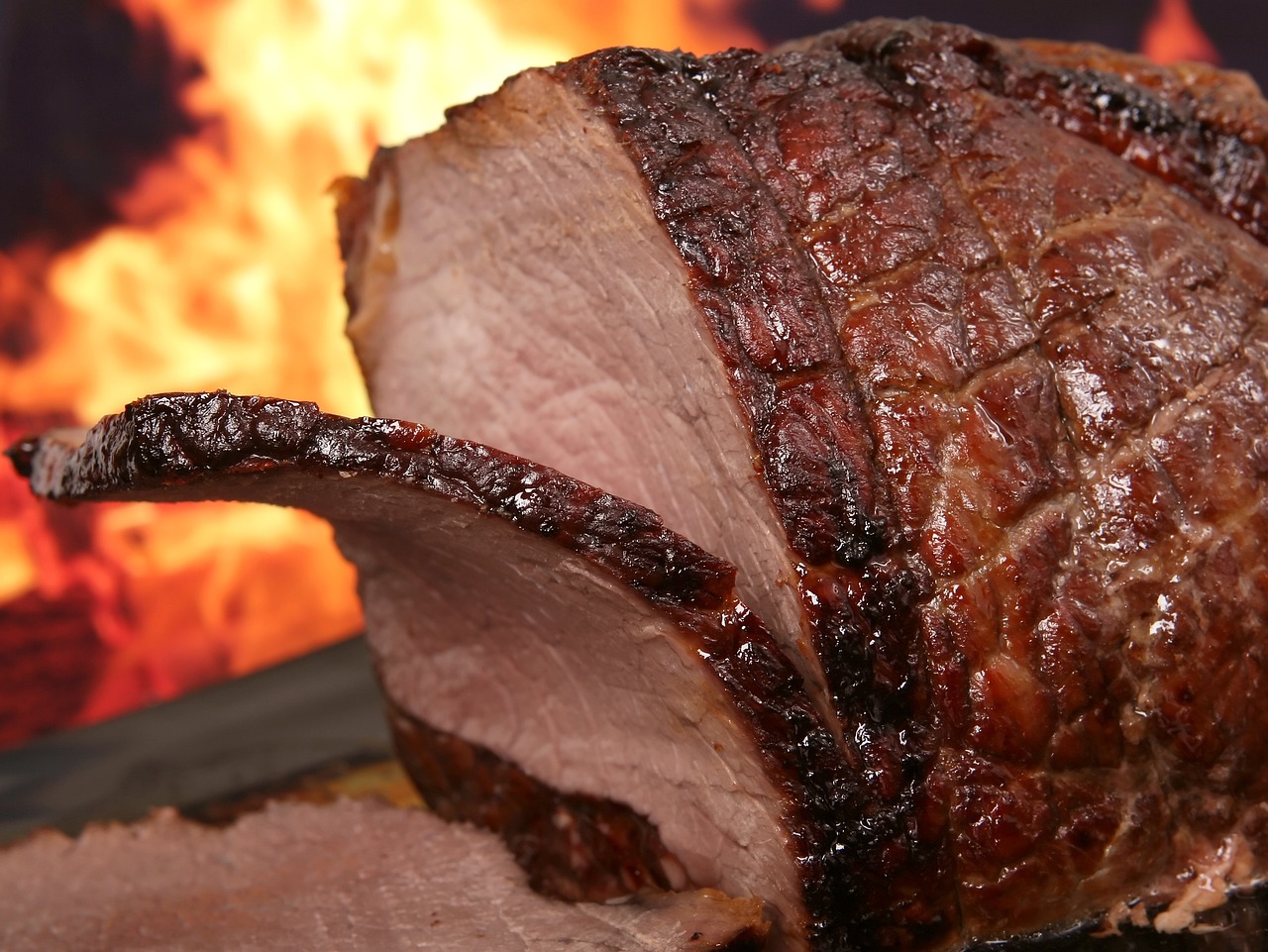The carnivore diet, an eating regimen centered entirely around animal products, emphasizes the consumption of meats that are rich in essential nutrients and low in carbohydrates. As a way of eating, it excludes plant-based foods, putting meat at the forefront of daily nutritional intake. Adherents to this diet argue for benefits such as weight loss, improved digestion, and reduced inflammation, often pointing to historical precedents of meat-centric diets in human evolution.
Choosing the right type of meat is crucial for anyone following the carnivore diet. High-quality meats provide the protein, fats, vitamins, and minerals necessary for this style of eating. While red meats like beef and lamb are staples due to their nutrient density and fat content, other options such as organ meats, poultry, game, and seafood are also valuable for their unique nutritional profiles. Consideration of the balance between fatty and lean cuts, as well as the inclusion of a variety of meats, can help to maintain a more comprehensive nutrient intake. Additionally, the question of consuming processed meats is important, as it relates to both health concerns and dietary effectiveness.
Key Takeaways
- Selecting nutrient-dense, high-quality meats is essential for the carnivore diet.
- A varied selection of meats including organ meats, game, and seafood provides a well-rounded nutrient profile.
- Considerations of fat content and the inclusion or exclusion of processed meats impact diet quality.
Fundamentals of the Carnivore Diet
The carnivore diet centers on the consumption of animal-based foods. Proponents claim it supports health by reducing inflammatory agents often found in plant-based foods. This diet includes meats that provide essential nutrients, fats, and proteins.
Primary Foods:
- Red meats (e.g., beef, lamb)
- Poultry
- Fish
- Eggs
- High-fat dairy products
Secondary Foods (Optional):
- Organ meats for nutrient density
- Bone broth for minerals
- Certain animal fats for cooking
The diet eliminates:
- Fruits
- Vegetables
- Grains
- Legumes
- Nuts and seeds
- Alcohol and sugar
Nutrient Considerations:
- Ample protein for muscle maintenance
- Fat as the primary energy source
- Micronutrients from organ meats and seafood
Meal frequency in the carnivore diet can vary; some individuals prefer two large meals, while others eat more frequently. Hydration is also crucial, with an emphasis on water intake. It is advised to monitor electrolyte balance, particularly sodium, potassium, and magnesium.
This diet is restrictive and should be approached with caution, ideally under professional guidance to ensure nutritional adequacy and address any health concerns.
Popular Meats for Carnivores
Within the carnivore diet, certain meats are favored for their nutritional value and availability. These include beef, pork, and lamb, each offering distinct benefits and flavors.
Beef
Beef is a staple in the carnivore diet celebrated for its rich source of protein, vitamins, and minerals. It provides essential nutrients such as vitamin B12, zinc, and iron. Common cuts include:
- Ribeye Steak: Known for its marbling and tenderness.
- Ground Beef: Versatile for various recipes; choose high-fat content for more energy.
Pork
Pork is another popular choice, often praised for its taste and fat content, which can be beneficial for energy in a carnivore diet. Notable options include:
- Bacon: A high-fat cut that offers a savory flavor; opt for versions with no added sugar.
- Pork Chops: Leaner than bacon but still provides a substantial fat content.
Lamb
Lamb is highly regarded for its high-quality protein and significant levels of omega-3 fatty acids. Lamb cuts often consumed are:
- Leg of Lamb: A lean and tender choice that is also rich in nutrients.
- Lamb Ribs: Offer a higher fat content, making them very flavorful.
Organs and Nutrient Density
Organ meats are powerhouse sources of nutrients that are highly beneficial for individuals on the carnivore diet. They contain concentrated amounts of vitamins, minerals, and essential amino acids vital for health.
Liver
The liver is one of the most nutrient-dense foods available. Per 100 grams, beef liver provides vitamin A (over 600% of the Daily Value), substantial quantities of vitamin B12 (1,386% DV), riboflavin (210% DV), and many other nutrients crucial for energy metabolism and vision.
| Nutrient | Quantity per 100g | % Daily Value |
|---|---|---|
| Vitamin A | 17,997 IU | 600% |
| Vitamin B12 | 60 mcg | 1,386% |
| Riboflavin | 3.42 mg | 210% |
Heart
Heart, especially from beef, is rich in Coenzyme Q10 (CoQ10), an antioxidant beneficial for cardiovascular health and energy production. A 100-gram serving of beef heart provides essential proteins and is a good source of the B-complex vitamins such as thiamine and folate.
- Thiamine: 0.2 mg (13% DV)
- Folate: 4 mcg (1% DV)
- Protein: 26 g
Kidney
Kidney meat offers various essential nutrients, highlighted by its concentration of selenium at 141% DV per 100 grams. It also contains iron and vitamins B2 (riboflavin) and B12, supporting the body’s enzymatic reactions and red blood cell production.
- Selenium: 99 mcg (141% DV)
- Riboflavin: 2.85 mg (167% DV)
- Vitamin B12: 20 mcg (333% DV)
Poultry Selection
Poultry offers a variety of meats suitable for the carnivore diet that provides essential nutrients, including high-quality protein, B vitamins, and minerals such as zinc and iron.
Chicken
Chicken is a staple in the carnivore diet due to its versatility and high protein content. The following table showcases the nutritional value of a typical serving size of chicken breast:
| Nutrient | Amount per 100g |
|---|---|
| Calories | 165 |
| Protein | 31g |
| Fat | 3.6g |
| Carbs | 0g |
For a fattier option, chicken thighs provide higher fat content, which is beneficial for those following a strict carnivore diet:
- Calories: 209 per 100g
- Protein: 26g per 100g
- Fat: 10.9g per 100g
Turkey
Turkey is another excellent poultry choice, known for its lean protein. It’s especially popular during the holiday season, but it provides year-round benefits for carnivore dieters. The turkey breast is comparable to chicken in nutritional value:
- Calories: 135 per 100g
- Protein: 30g per 100g
- Fat: 0.7g per 100g
Select dark meat for a higher fat content that aligns with the carnivore diet’s macronutrient requirements.
Duck
Duck meat stands out for its rich flavor and higher fat content, making it a sought-after option for those on the carnivore diet. Here are some key nutritional facts for duck breast:
- Calories: 337 per 100g
- Protein: 19g per 100g
- Fat: 28g per 100g
Duck also provides a good source of iron and other micronutrients. It’s best cooked with the skin on to retain its natural fats.
Game and Exotic Meats
Game and exotic meats are an excellent source of high-quality protein and are often leaner than traditional meats. They provide diversity to the carnivore diet and are typically rich in nutrients.
Venison
Venison is the meat of deer and is highly regarded for its flavor and nutritional profile. It has a lower fat content compared to beef and is a good source of iron and B vitamins. The following table summarizes its benefits:
| Nutrient | Benefit |
|---|---|
| Protein | High-quality, complete protein |
| Fat | Less saturated fat than beef |
| Iron | Contributes to hemoglobin formation |
| B Vitamins | Supports cellular metabolism |
Bison
Bison meat is another favored choice for those following a carnivore diet. It is known for being leaner than beef but with a similar taste. Bison offers a rich source of omega-3 fatty acids, which are beneficial for heart health.
- Protein: High in protein, bison supports muscle maintenance and growth.
- Fat: Lower in fat, particularly saturated fat, than most commercial beef.
- Omega-3 Fatty Acids: May help reduce the risk of heart disease.
Elk
Elk meat is often characterized by its lean composition and mild, savory flavor. It is a sustainable meat option and provides a variety of vitamins and minerals, including phosphorus, zinc, and niacin.
- Protein: Comparable to other game meats in high-quality protein content.
- Fat: Low in fat, offering a healthy alternative to fattier red meats.
- Nutrients: Abundant in micronutrients supporting overall health.
Seafood Choices
Seafood is a valuable addition to the carnivore diet, offering high-quality protein and essential omega-3 fatty acids. The low-carb profile of seafood aligns well with the carnivore diet framework.
Fish
Fish stand out for their omega-3 content, crucial for overall health. Salmon, in particular, offers rich flavor and excellent fatty acid content. Consider wild-caught over farmed to maximize nutrient intake. Mackerel is another nutrient-dense choice, known for its vitamin D and selenium.
- Salmon: High in omega-3s, protein
- Mackerel: Rich in vitamin D, selenium
Shellfish
Shellfish, such as oysters and clams, are nutrient powerhouses, providing zinc and iron. They offer a variety in taste and texture for those on a carnivore diet.
- Oysters: Excellent source of zinc
- Clams: High in iron
Crustaceans
Crustaceans like lobster and crab are not only delicious but also packed with protein and essential vitamins. They are a luxurious option that can be included in a carnivore diet for both flavor and nutrition.
- Lobster: Lean protein, phosphorus
- Crab: Contains vitamin B12, protein
Fatty Cuts vs Lean Cuts
The carnivore diet emphasizes animal products, and the choice between fatty and lean cuts can influence one’s nutritional intake. Fatty cuts are typically higher in calories and essential fatty acids, while lean cuts offer less fat and fewer calories.
Ribeye Steak
Ribeye steak is a prime example of a fatty cut, well-marbled with fat. It offers a rich flavor and is high in both fat and protein. On average, a ribeye steak has about:
- Calories: 271 per 3 oz serving
- Total Fat: 22.6g
- Protein: 17.8g
Chicken Breast
In contrast, chicken breast is considered a lean cut. It contains minimal fat with a high protein content. A typical serving of chicken breast yields roughly:
- Calories: 165 per 3.5 oz serving
- Total Fat: 3.6g
- Protein: 31g
Pork Belly
Pork belly is another fatty cut favored for its flavor and tenderness. It provides significant amounts of fat and is often used in slow-cooked dishes. A 3 oz serving of pork belly generally provides:
- Calories: 588
- Total Fat: 60g
- Protein: 9g
Processed Meats and Considerations
When adopting a carnivore diet, one must weigh the benefits and drawbacks of incorporating processed meats, such as bacon, ham, and sausages. These meats can provide convenience and variety, but they often contain additives and higher levels of sodium.
Bacon
Bacon is a popular choice for its flavor and versatility. However, those considering bacon for the carnivore diet should look for options that are minimally processed and low in preservatives. Nitrate-free bacon with no added sugars is preferable.
- Pros:
- High fat content, satisfying and energy-dense.
- Adds flavor diversity to the diet.
- Cons:
- Often contains preservatives and artificial flavors.
- Higher sodium content, which could be a concern for some individuals.
Ham
Ham is another processed meat frequently consumed on a carnivore diet. The key is to select ham that is uncured and contains no fillers. Look for labels that read “no added nitrates or nitrites” and check the ingredient list for minimal additives.
- Pros:
- Ready-to-eat convenience.
- Can be a leaner meat option, offering a good source of protein.
- Cons:
- Pre-packaged hams may have added sugars and glazes.
- Sodium content can be high, which may require moderation.
Sausages
Sausages are diverse in their ingredient profiles and can be tailored to fit a carnivore diet. Seek out sausages that are made from 100% meat without fillers like breadcrumbs or grains, and that have transparent labeling of their ingredients.
- Pros:
- Variety of flavors and meat types available.
- Can be a good source of fat and protein.
- Cons:
- Some sausages contain preservatives, additives, and hidden carbs.
- The quality greatly varies by brand and preparation, so one must read labels carefully.


